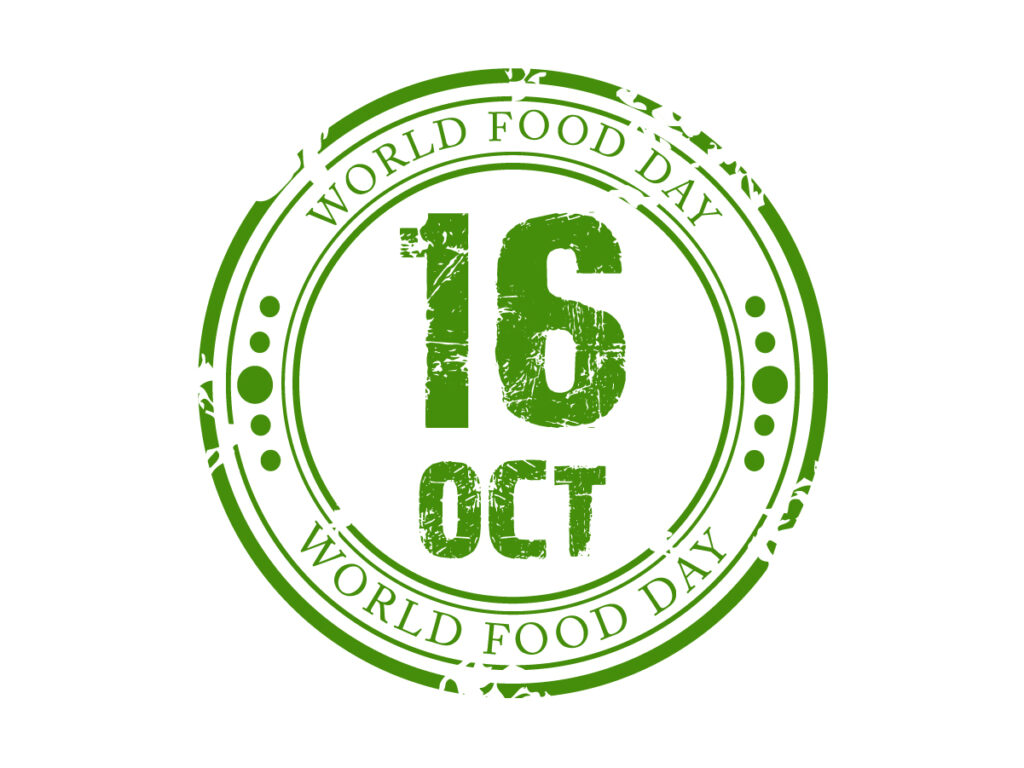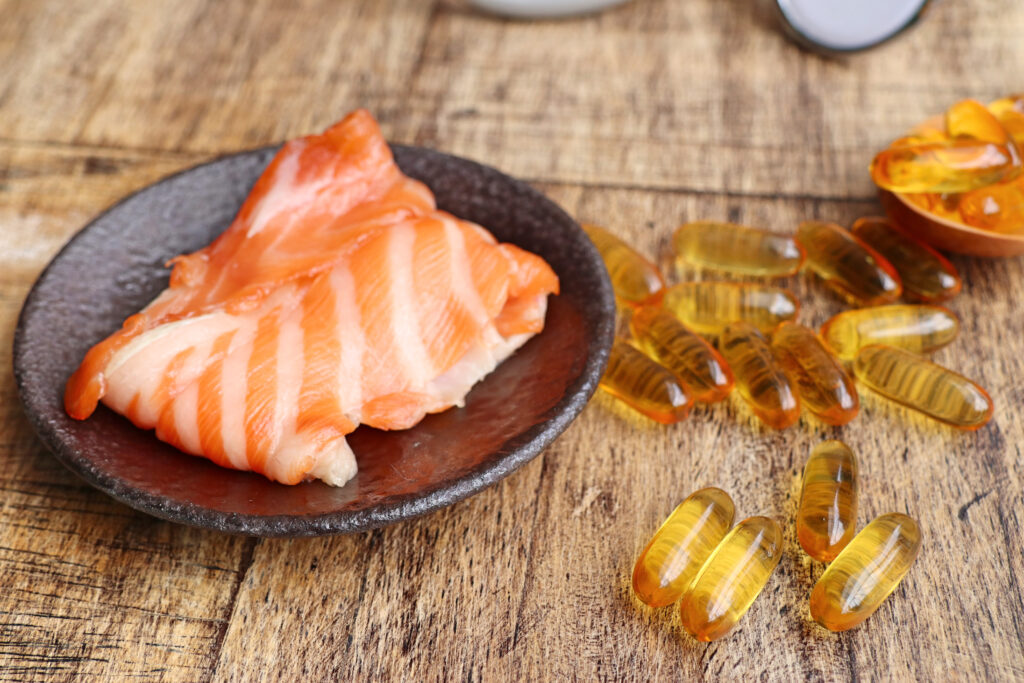Every Day Should Be World Food Day
By Gretchen Vannice, MS, RDN
Food. A common need among all living creatures. None of us would live long without it.
Food provides sustenance for life, it supplies energy so we can be productive citizens, and it offers endless opportunities for families and community gatherings which build and strengthen us. Our homes are designed to shelter, prepare, and consume food. Social events and traditions are celebrated with food. Food is core to our being. The global agriculture food system is complex and impact each of us, every day.

October 16 is World Food Day, designated by the Food and Agriculture Organization of the United Nations.
In nutrition, the three macronutrients providing calories and nutrients for human health are protein, carbohydrates, and fat; we also need water.
Let’s take a closer look at fat.
Do we need fat? If yes, why?
As humans, we like to eat fat. We like fat because it makes food taste richer, fuller flavored. Fat makes meat tender and cheese softer. We like the sizzle in the griddle as fat cooks and crisps our foods. Oil/fat carries spices and flavors throughout every bite. We also like fat because it makes us feel satiated or satisfied.
It’s good we like fat; it’s a convenient and dense source of calories.
Fat supplies 9 calories per gram of food compared to 4 calories per gram in protein and carbohydrates. That is why, for example, a tablespoon of cooking fat (vegetable shortening) has 120 calories while a tablespoon of syrup provides about 50 calories. Fat is a dense source of energy (calories). That’s also why metabolizing or burning the fat in our bodies, in our adipose tissue, takes more effort.
The 3 main types of fat in our food supply; they differ according to their chemistry:
- Saturated fats, commonly found in animal foods (e.g., meat, cheese) are solid at room temperature and harden when chilled.
- Monounsaturated fats, best known in olive oil, is partially solid at room temperature and partially solidified when chilled.
- Polyunsaturated fats, found in seed and nut oils and fish oils, are liquid at room temperature and even when chilled. Polyunsaturated fats are more vulnerable to oxidation.
Fats are not equal when it comes to nutritional value. While all fats provide valuable energy and sensory benefits, only polyunsaturated fats – or PUFAs – provide the essential fats necessary for human growth, development, and maintenance, and are therefore essential fats.
PUFAs are the fats we need.
Both omega-3 and omega-6 fats are essential polyunsaturated fatty acids. Like vitamins and minerals, humans cannot produce omega-3 and omega-6 fats so we must consume them from our food or supplements.
Why do we need them?
Essential fats are metabolically active nutrients; they manage, regulate, and control cellular activity throughout our bodies. We need essential fats to maintain metabolic balance, for critical functions such as breathing, heartbeat, immunity, etc. While both omega-3 and omega-6 fats are essential nutrients, most of us consume plenty of omega-6 fats and too little omega-3s. There are more than 40,000 scientific papers and several books written about the benefits of omega-3 fats. In brief, much like our muscles need magnesium, our nerves need calcium, and our blood needs iron, so to our brains, hearts, eyes, and cells need EPA and DHA omega-3 fats.

In industrialized nations, most of us are privileged enough to have ready access to food, but there are many who are not so privileged. And the impact between getting and not getting our essential omega-3 nutrients is profound.
For example, in Malawi, Africa, a recent research project in more than 2500 severely malnourished infants and toddlers discovered that adding as little as 72 mg DHA omega-3 from fish oil (and lowering an omega-6 fat to improve fat balance) significantly improved cognitive outcomes in these children. They fed the children, stopped, then tested them 6 months later; less than 75 mg of DHA per 100 gram serving made the difference.
EPA and DHA omega-3s naturally occur in fish and seafood. At AlaskOmega®, we concentrate EPA and DHA omega-3 in the oil of wild, sustainably sourced, traceable, and certified Alaskan Pollock. After the Pollock is filleted and roe is removed, we purify and concentrate EPA and DHA, producing oil and powder for human and pet consumption, for dietary supplements and to fortify foods. No part of the fish is wasted.
We make it easier for people and pets to consume the essential nutrients they need.
I’m grateful to work for a company dedicated to improving public health and meeting a global need for nutrients. As leadership once said to me “if the world needed other nutrients, we’d be in a different business.”
Food is core to our lives.
The world is better when we have access to food that meets our nutritional needs because we physically and mentally perform better, we learn and grow better, we live and love better, and a good state of health allows us to be fully engaged in daily living.
Every day is World Food Day.
Gretchen Vannice is the Director of Nutrition Education and Research for Wiley Companies. She is a globally recognized expert, author, and speaker in evidence-based nutrition, research, and education.
Disclaimer: This information is offered for educational purposes only. It is the opinion and scientific interpretation of the author. It is not intended as medical advice of any kind. The educational information provided is not intended to diagnose, treat, mitigate, or cure any disease nor has this been reviewed or approved by the FDA.
Scientific References are available upon request.